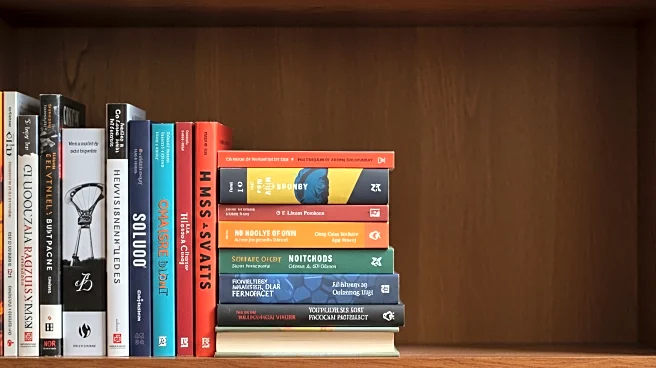What's Happening?
Adam Szetela, a journalist and PhD student at Cornell, has released a book titled 'That Book Is Dangerous: How Moral Panic, Social Media, and the Culture Wars are Remaking Publishing.' The book examines the impact of progressive activism on the publishing industry, highlighting how social media has fueled a movement that pressures for increasingly progressive content. Szetela argues that this has led to self-censorship, alienating authors and readers who seek diverse narratives. He began researching the topic in 2019, following the cancellation of two YA novels due to social media backlash. Despite challenges in finding a publisher due to concerns over potential backlash, Szetela's book was eventually published by MIT Press.
Why It's Important?
The book sheds light on the ongoing culture wars within the publishing industry, which have broader implications for freedom of expression and diversity in literature. Szetela's work suggests that the pressure to conform to progressive ideals may stifle creativity and limit the diversity of voices in publishing. This has potential consequences for authors, publishers, and readers, as it may restrict the range of stories available and discourage open dialogue. The issue is particularly relevant as the industry grapples with calls for greater diversity and inclusion, while balancing concerns over censorship and creative freedom.
What's Next?
The publishing industry may continue to face challenges related to self-censorship and cultural pressures. Stakeholders, including publishers, authors, and literary agents, may need to navigate these dynamics carefully to foster an environment that supports diverse voices without succumbing to censorship. Discussions around these issues are likely to persist, potentially influencing industry practices and policies. As the culture wars evolve, the industry may seek new strategies to address these challenges while promoting inclusivity and freedom of expression.
Beyond the Headlines
The book raises ethical questions about the role of social media in shaping cultural narratives and the responsibility of publishers to balance diversity with creative freedom. It also highlights the potential for political correctness to intensify in response to broader political dynamics, suggesting that cultural battles may reflect deeper societal tensions. The long-term impact on the publishing industry could include shifts in how books are marketed, reviewed, and consumed, as well as changes in the types of stories that gain prominence.











